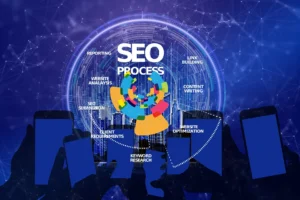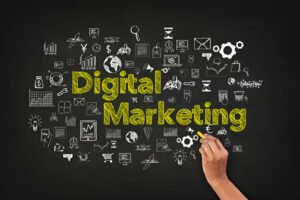Title: Understanding Performance Marketing: Maximizing ROI in the Digital Age
In the fast-paced world of digital marketing, businesses are constantly seeking innovative ways to reach their target audience effectively. Traditional marketing methods, while still relevant, have taken a back seat to more dynamic and measurable strategies. Performance marketing has emerged as a powerful tool for businesses looking to maximize their return on investment (ROI) by focusing on measurable outcomes. In this blog post, we’ll delve into what performance marketing is, its key components, strategies, and why it’s become essential in today’s competitive landscape.
What is Performance Marketing?
Performance marketing is a comprehensive approach to marketing that focuses on driving measurable results. Unlike traditional marketing, which often relies on vague metrics like brand awareness, performance marketing is all about tangible outcomes such as leads, sales, or customer actions. The defining characteristic of performance marketing is its emphasis on paying for actual results achieved, rather than just exposure or ad placement.
Key Components of Performance Marketing
- Measurable Goals: At the heart of performance marketing are clear, measurable goals. Whether it’s increasing website traffic, generating leads, or driving sales, performance marketing campaigns are designed with specific objectives in mind.
- Targeted Audience: Understanding the target audience is crucial for performance marketing success. By leveraging data analytics and audience insights, marketers can identify and target the most relevant prospects, increasing the likelihood of conversion.
- Data-driven Strategies: Performance marketing relies heavily on data analytics to inform decision-making. Marketers track key performance indicators (KPIs) in real-time, allowing for quick adjustments and optimization to maximize ROI.
- Multi-channel Approach: Performance marketing campaigns often span multiple channels, including search engines, social media, email, and display advertising. By diversifying the channels used, marketers can reach a wider audience and increase the chances of engagement.
- Performance-based Pricing Models: One of the hallmarks of performance marketing is its use of performance-based pricing models such as cost-per-click (CPC), cost-per-acquisition (CPA), or revenue share. This ensures that advertisers only pay when desired actions are achieved, making it a cost-effective option.
Strategies for Success
- Search Engine Marketing (SEM): SEM involves optimizing websites and running paid search advertising campaigns to improve visibility on search engine results pages (SERPs). By targeting relevant keywords, businesses can attract highly qualified leads actively searching for their products or services.
- Social Media Advertising: With billions of users active on platforms like Facebook, Instagram, and LinkedIn, social media advertising offers immense potential for reaching and engaging target audiences. Performance marketers leverage advanced targeting options and ad formats to drive specific actions such as website visits, app installs, or purchases.
- Affiliate Marketing: Affiliate marketing is a performance-based strategy where businesses partner with affiliates (publishers or influencers) to promote their products or services. Affiliates earn a commission for each sale or lead generated through their referral, making it a low-risk, high-reward model for advertisers.
- Email Marketing: Despite the rise of newer marketing channels, email remains a powerful tool for driving conversions. Performance marketers utilize personalized email campaigns to nurture leads, re-engage customers, and prompt desired actions such as purchases or sign-ups.
- Content Marketing: Content marketing focuses on creating valuable, relevant content to attract and engage a target audience. Performance marketers measure the effectiveness of content through metrics such as website traffic, engagement, and conversions, adjusting strategies based on performance data.
The Importance of Performance Marketing
In today’s digital landscape, where every marketing dollar counts, performance marketing offers several distinct advantages:
- Measurable Results: Performance marketing provides clear, quantifiable results, allowing businesses to track ROI accurately and optimize campaigns for maximum effectiveness.
- Cost Efficiency: With performance-based pricing models, advertisers only pay when desired outcomes are achieved, minimizing wasteful spending and maximizing budget efficiency.
- Targeted Reach: By leveraging data and analytics, performance marketers can precisely target their messaging to the most relevant audience segments, increasing the likelihood of conversion.
- Flexibility and Agility: Performance marketing campaigns can be quickly adjusted and optimized based on real-time data insights, allowing marketers to respond rapidly to changing market conditions or consumer behavior.
- Scalability: Performance marketing strategies can scale with business growth, allowing advertisers to expand their reach and increase investment as needed while maintaining a clear focus on ROI.
Conclusion
Performance marketing has emerged as a dominant force in the digital marketing landscape, offering businesses a highly effective and efficient way to drive measurable results. By focusing on clear objectives, leveraging data-driven strategies, and utilizing a diverse range of channels and tactics, performance marketers can maximize ROI and achieve tangible business outcomes. As technology continues to evolve and consumer behavior evolves, performance marketing will remain essential for businesses looking to thrive in an increasingly competitive marketplace.







